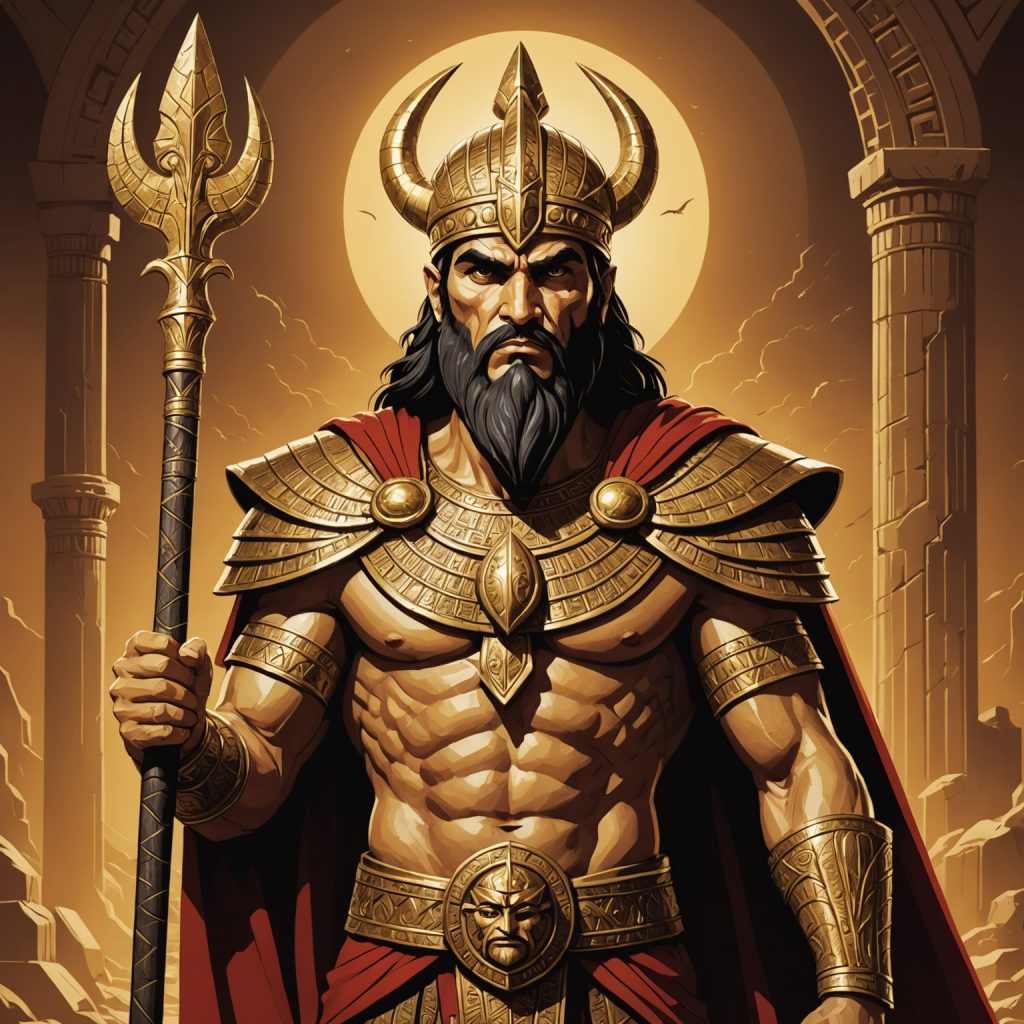Gilgamesh is not typically considered a deity, but rather a demigod and legendary hero from ancient Mesopotamian mythology. He is the main character in the “Epic of Gilgamesh,” one of the oldest known works of literature, originating from Sumerian, Akkadian, and Babylonian traditions.
Gilgamesh was said to be two-thirds god and one-third human, the son of the goddess Ninsun and the mortal king Lugalbanda. He ruled the Sumerian city-state of Uruk around 2700 BCE as a historical king, but over time his story was mythologized.
In the spiritual and mythological context, Gilgamesh represents the archetypal hero’s journey—his story explores themes of friendship, the nature of humanity, the fear of death, and the quest for immortality. His relationship with his companion Enkidu illustrates the balance between nature and civilization, and the death of Enkidu propels Gilgamesh on a spiritual quest to uncover the secret of eternal life.
Though not worshiped as a god in a traditional sense, Gilgamesh was venerated as a cultural hero and sometimes deified in later traditions. In esoteric interpretation, his journey symbolizes inner transformation, the confrontation with mortality, and the attainment of wisdom through direct experience.
